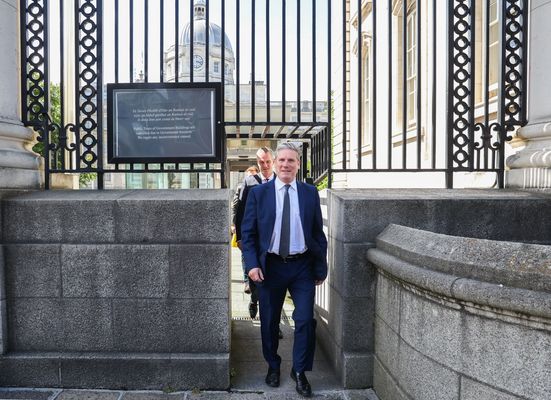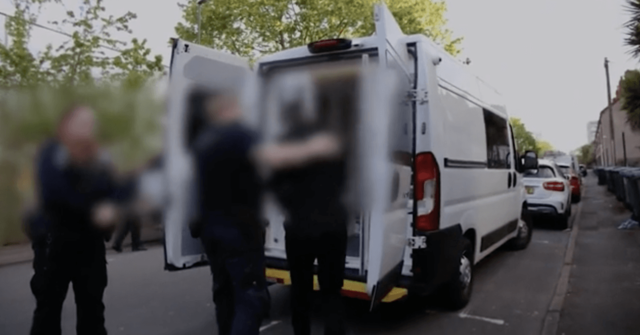WAR crimes. Genocide. Crimes against humanity. The crime of aggression. These concepts of the international legal order, established in the era of the prosecution of Nazi leaders at Nuremburg, are once again part of everyday conversation. Ukrainian President Zelenskiy is having a good deal of success in mobilising powerful countries and not-so-powerful countries in activating these human rights concepts to address the actions of Putin’s forces.
Ukraine braces for new Russian offensive as Moscow dismisses rape allegations https://t.co/wvhzeNuT5B pic.twitter.com/dbTPqaLN7a
— Reuters (@Reuters) April 12, 2022
The United Nations Charter was agreed in June 1945 and immediately signed by 50 countries. The international community of nations vowed “never again” to allow a repeat of Nazi Germany’s acts of genocide and other atrocities of World War II. The opening words of the Charter commit the UN to maintain international peace and security, and to suppress acts of aggression in line with principles of justice and international law. It requires nations to respect principles of “equal rights and self-determination of peoples”, paving the way for post-war decolonisation. Signatories pledge “to achieve international co-operation in solving international problems of an economic, social, cultural, or humanitarian character, and in promoting and encouraging respect for human rights and for fundamental freedoms for all without distinction as to race, sex, language, or religion”. Three years later, all this was elaborated in the Universal Declaration of Human Rights.
Ever since, there has been a struggle to implement and enforce international human rights principles and standards. It took fifty years to agree a permanent court – the International Criminal Court at the Hague – to put crimes against humanity and genocide on trial. As it happens, agreement on the ICC was reached around the same time as the Good Friday Agreement in 1998, though the Court didn’t start work until 2002. The ICC is already involved in Ukraine. In fact its chief prosecutor opened an investigation into war crimes and human rights abuses four days after the Russian invasion began.
The trouble is, not all countries recognise the Court’s authority, the US and Russia included. The fear of the powerful is that the ICC might make military personnel and political leaders accountable for actions in Iraq, Palestine, and Afghanistan, to name just a few possibilities. There is also the problem that the “crime of aggression” – the charge used to prosecute Nazi leaders – cannot be tried by the ICC. Putin’s invasion is such a clear example of this crime so how can he be prosecuted? Ukrainian law includes the crime of aggression so it may be possible for Ukraine to take a case under its own law with support from a body such as the Council of Europe, the home of the European Convention on Human Rights and the associated Court.
Leading international human rights lawyer Philippe Sands, whose grandfather was born in Lviv and many of whose extended family were transported to the death camps, sees this moment as a critical one: it is about “whether the 1945 settlement survives or dies”. His fear is that three years down the line there are a few trials of mid-level commanders but that Putin and those around him survive unscathed: “That would be a deplorable outcome.”
In a talk last week, Sands discussed Britain’s ambivalent attitude to international law using the example of the Chagossians, the former inhabitants of a group of islands in the Indian Ocean. The Chagos islands, along with Mauritius, were a French colony until handed to the British in 1814. Between 1967 and 1973, all the inhabitants of the islands were forcibly removed so that the Americans could build a military base on one of the islands, Diego Garcia. While it has been established in international law that the islands belong to Mauritius and that the Chagossians have a right to return to the islands, Britain refuses to recognise such judgements. Philippe Sands has acted for the Chagossians and has this to say:
“It is ironic to hear the United Kingdom complain about Russia's occupation of parts of Ukraine when the United Kingdom itself is occupying a part of Africa. […] The United Kingdom with the support of the United states is not heeding two international rulings that make it crystal clear that Mauritius alone has sovereignty over the territory of the Chagos archipelago.”
My @BrookingsInst lecture - make of it what you will ... Crimes against humanity, genocide, and ecocide: Of rights, responsibilities, and international order https://t.co/4akAUrOAJi
— Philippe Sands (@philippesands) April 10, 2022
It is also ironic that when the Russian Federation was voted off the Human Rights Council in March, Britain’s ambassador to the UN described the vote is “a victory for human rights”. He represents a government that is actively promoting an anti-rights culture.
Sands is not arguing that the violation of rights in Ukraine and the Chagos islands are equivalent. His point is that there is a serious problem with lack of respect for the international rule of law. Even minor violations are corrosive of a positive human rights culture.
For many years the Justice Secretary Dominic Raab has championed an anti-human rights cause, echoing the Tory Party 2015 manifesto promise to scrap the Human Rights Act. Raab is intent on replacing the Act with “a British Bill of Rights”.
You can’t pick & choose which #HumanRights you care about. Tory plans for a British Bill of Rights hark back to a mythical UK tradition that doesn’t exist & I think we can be sure they won’t include the right to self determination. https://t.co/IZDiiCGbkO
— Joanna Cherry QC (@joannaccherry) December 17, 2021
His latest ‘consultation’ document on the subject makes it quite clear that the intention is to constrain the use of fundamental human rights provisions. Raab wants to water down the positive duty that state bodies currently have to protect life. He also wants to introduce a ‘permission to proceed’ stage under which a court would need to consider if a ‘significant disadvantage’ had been suffered before allowing a human rights case to proceed. This comes on top of the ambition to diminish rights and access to the courts specifically in relation to conflict-related legacy issues.
The plan to ban legacy prosecutions arsing from the Troubles in Northern Ireland isn't an anomaly – it's part of a broader effort to erase Britain's crimes from the historical record.https://t.co/l0vn34dSK5
— Tribune (@tribunemagazine) August 10, 2021
All of this cuts across the GFA’s commitment to ‘no diminution’ of rights under the European Convention on Human Rights, and to ‘direct access’ to the courts and remedies. The plan for a new, restrictive British Bill of Rights is in stark contrast to the Bill of Rights for the north promised in the GFA but yet to be delivered. The GFA is supposed to expand rights’ provisions. In the latest attempt to get things moving, an Assembly committee (as provided for in New Decade, New Approach) consulted widely on the matter. But the committee’s report is full of DUP objections, such as to the inclusion of children’s rights, environmental rights and social and economic rights. The DUP is also against the enforcement of rights through the courts.
In celebrating Britain’s “retreat from ‘rights’ laws”, a News Letter editorial (5 April) suggested that the ability to diverge from European Convention rights was part of the “opportunities” and “spirit of Brexit”. It hopes that the British government “does indeed scrap the Human Rights Act, and extends that scrapping to Northern Ireland”.
The @News_Letter endorses the potential scrapping of the Human Rights Act and rejects a Bill of Rights for NI.
— Colin Harvey (@cjhumanrights) April 5, 2022
Ponder that.https://t.co/WTcGymDYHj pic.twitter.com/0WiOgTAiRK
Whipping up anti-rights sentiment at a time like this is a strange way of promoting the benefits of the union. Human rights, in principle and practice, are for the benefit of everyone.








